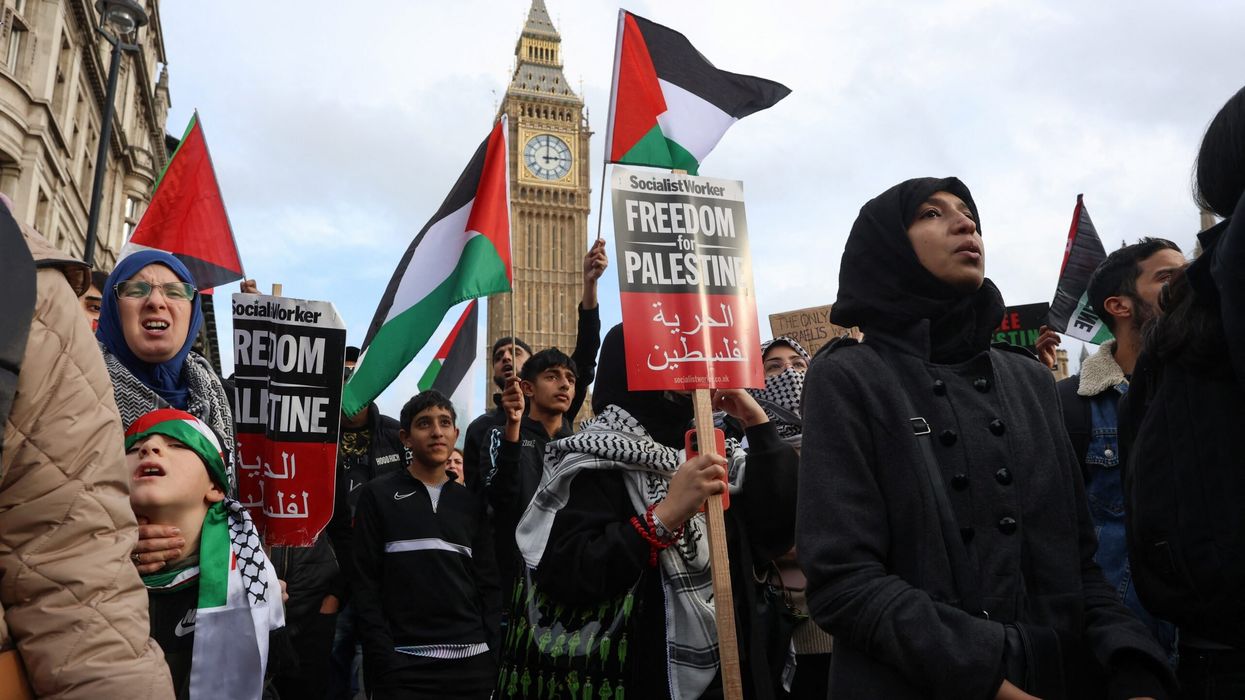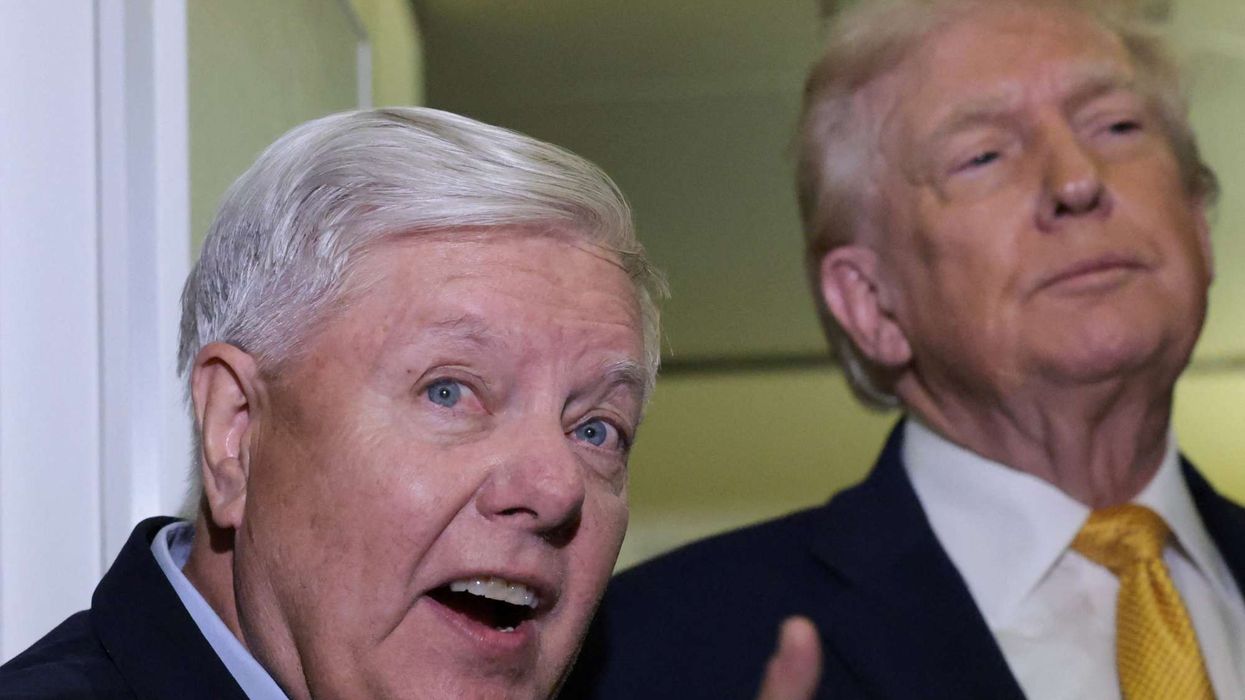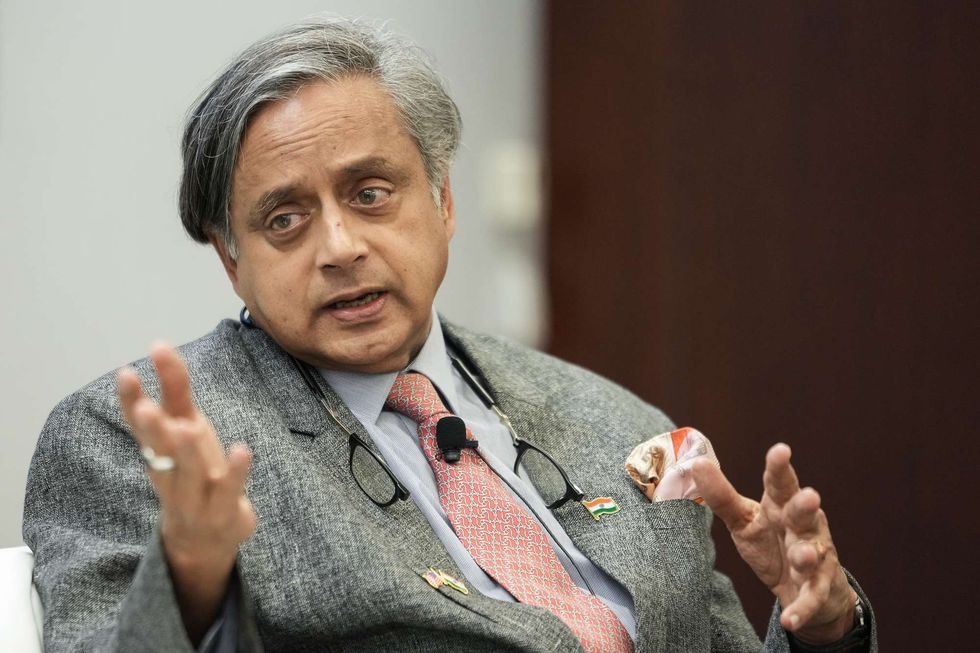Keeping prejudice out of politics is becoming increasingly fraught in polarised times.
Taking to the streets to protest must be part of free speech – within decent democratic boundaries. That deal is broken if prejudiced placards, chants and slogans go unchecked – but undermined too when politicians declare every protestor for peace or Palestine to be a pro-Hamas hate marcher or part of an Islamist mob.
Democratic protest must mean persuasion, not intimidation. Enabling MPs to make their views and votes as clear as possible on questions of war and peace is a good principle – but the Commons speaker citing threats to MPs as a decisive influence of his decisions was unfortunate. Every practical thing should be done for MPs’ security, except for changing the business of the Commons.
One irony of a ferocious and incomprehensible partisan battle over Commons procedure was just how much most MPs across parties can agree on what they would wish for in the Middle East – a sustainable ceasefire, hostages released, humanitarian aid, and a diplomatic push for a two-state solution – but with limited power to make that happen.
Prime minister Rishi Sunak made Lee Anderson a party vice-chair a year ago, with a licence to offend, provoke opponents and to polarise. He has now removed the whip from his party’s most strident right-winger. Yet Anderson was trying to argue that Suella Braverman had gone too far with her sweeping claim that “Islamists run Britain”. He narrowed that charge to Islamist ‘control’ of London mayor Sadiq Khan and Labour leader Sir Keir Starmer.
This was partly a reprise of Tory attacks on the ‘loony left’ - but a baseless conspiratorial smear personally attacking a mayor (who is himself Muslim) does nothing to challenge Islamist extremism.
The suspension of Anderson, but not Braverman, illuminates a view of prejudice as primarily about interpersonal incivility. Lurid conspiracy claims about the woke-Islamist coalition running the ‘deep state’ – an implausible alibi for a Conservative government after 14 years – go unchecked.
Consistency in tackling prejudice is difficult to achieve. Challenging political opponents is easy. The test that matters is applying similar standards to your own tribe. Any party that wants to govern our country should seek to meet this simple ‘one nation’ test: that no citizen should feel any tension between their ethnicity or faith and their stake in our shared society.
It was mainly left to the tiny number of Muslim Conservative parliamentarians, with a handful of allies, to insist on action. Without the intervention of government minister Nus Ghani, who tried to explain to Anderson why his comments were dangerous and divisive, together with former Home Secretary Sajid Javid, it is unclear that a reluctant Sunak would have suspended Anderson.
The Ashfield MP turned down the chance to retain the whip with an apology, from a stubborn mixture of pride and prejudice.
London’s Conservatives were admirably quick to distance themselves from Anderson’s remarks, with Susan Hall speaking out about the anti-Muslim prejudice Khan faces. That shows that some lessons have been learnt from the Zac Goldsmith campaign of 2016.
Yet, Richard Tice of Reform dismissed challenges to the anti-Muslim smear against Khan as a political elite obsession with “hurty wurty words” and invited Anderson and his supporters to feel at home with Reform.
Even after the suspension, Sunak, deputy prime minister Oliver Dowden and illegal migration minister Michael Tomlinson all struggled (or refused) to say why Anderson’s comments were wrong.
The government has no working definition of anti-Muslim prejudice. It is sceptical about an APPG (all party parliamentary group) definition of Islamophobia, so committed to building consensus on an alternative in 2019, before abandoning that pledge with no end product.
Equalities minister Kemi Badenoch is right to say that “anti-Muslim hatred” can be a clearer term. Centring "Islam" rather than "Muslims" can blur the key distinction. Critiquing political and theological ideas is free speech – but prejudice against people who are Muslim crosses the line. But the government lacks the basic foundations to make its commitment to ‘zero tolerance’ of anti-Muslim prejudice more than rhetoric.

Conservative MP Rehman Chishti detailed the policy vacuum: the government has no working definition, has appointed no adviser on anti-Muslim prejudice, and has no active forum of engagement with whichever civic Muslim groups it is willing to talk to. The recent government decision to defund the Interfaith Network further exacerbates that problem.
The contested politics of prejudice will remain in the headlines. The Rochdale by-election may see suspended Labour candidate Azhar Ali still emerge as an MP if voters did not hear about his suspension for an antisemitic conspiracy theory, or if they still prefer him to George Galloway.
Galloway’s charge, that Starmer is controlled by Zionists, offers the mirror image of Anderson’s conspiratorial claim that he is in the pocket of Islamists – but may still get a Commons platform again. By the end of this general election year, voters as well as parties will have to determine which democratic boundaries we value.
(The author is the Director of British Future)






 Shashi Tharoor
Shashi Tharoor Nicolás Maduro arriving at the Down town Manhattan Heliport.
Nicolás Maduro arriving at the Down town Manhattan Heliport.





